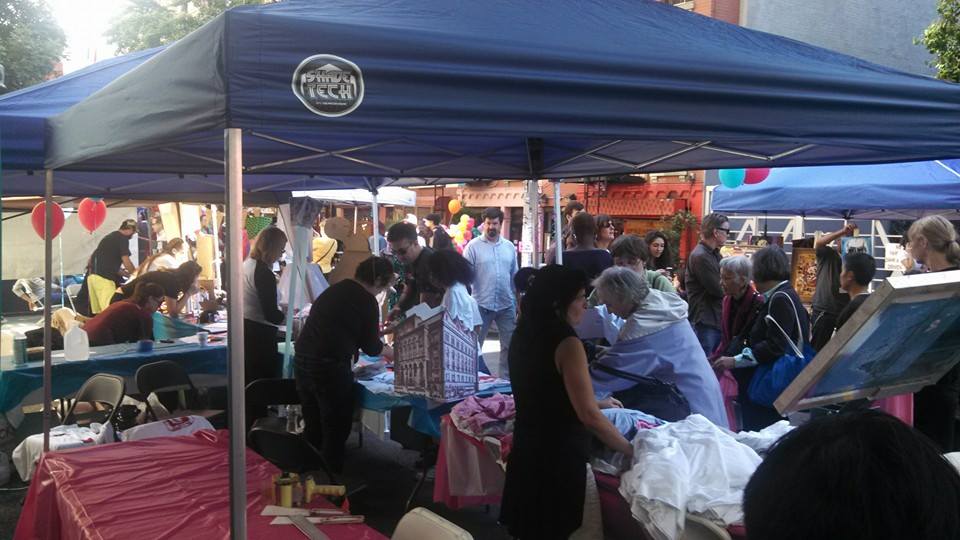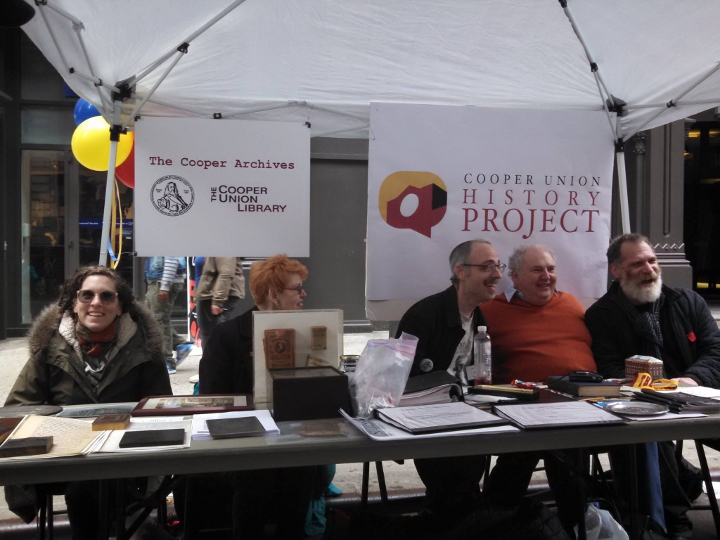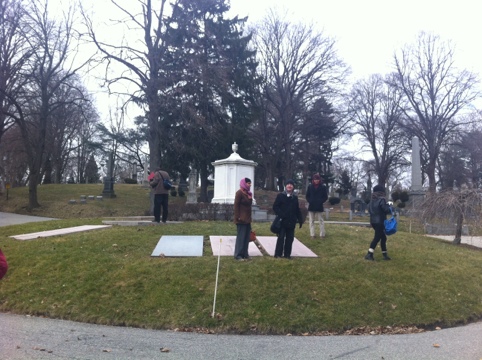
About the Cooper Union History Project
“I used to think history was a pretty interesting but largely quiet-ish kind of endeavor, but there was nothing like the last four years...
Actually the struggle over Cooper Union's history is the struggle over its future, which is very strange...
One has to be very careful about what history one advances because, especially in an institution which is now very old by American standards,
that history is not just a matter of original intent, we're never going to get there, but is a matter of active practice, and that's what I think we've got to concentrate on.”Professor Peter Buckley, Cooper Union historian, President Sparks and Professor Buckley in Conversation, February 7, 2017.
The earliest published reference to "the Cooper Union History Project" appeared on June 5, 2013, on the Friends of Cooper Union website:
The Cooper Union History Project is a space to publish research on Cooper Union’s history with the aim of amassing a faithful representation of the principles, aims and lessons of Cooper’s past and present.
The first posting was a statement by Professor Peter Buckley, Cooper Union historian, on tuition. Another project was a space for the Associates of Cooper Union, with primary research by Sangu Iyer, Bhaskar Krishnamachari, and CB Wayne, amongst others. Back on February 5, 2013, Noemi Charlotte Thieves had collected oral histories at the Founder's Day Dinner; the following year, the Associates had a booth at the Peter Cooper Block Party, and Noemi returned to record more oral histories under their banner, as per these statements on the Block Party website:
The Associates of Cooper Union: One of the goals of the Associates is to preserve and protect Cooper Union's history. We as a community are the keepers of our collective memory. We will be presenting the Cooper Union History Project, and record mini-interviews (similar to Story Corps) from participants about their memories of Cooper Union.
This had been preceded by the Cooper Union Alumni Association, under the leadership of Kelly Occhiuzzo Zack, organizing a booth at Fourth Arts Block (FAB) Fest 2013, on September 28, 2013, as seen from this listing.

Afterwards, the "ownership" of the Cooper Union History Project had expanded, as per these statements on the Cooper Union Alumni Association website:
Founder’s Day 2014: The Cooper Union History ProjectThe Cooper Union History Project (CUHP) is a joint effort between the Cooper Union Alumni Association, the Ad-Hoc Committee of the Associates of Cooper Union, and Friends of Cooper Union, with the goals preserving and sharing Cooper Union’s history. One initiative of the CUHP is an oral history project, which kicked off during Founder’s Day 2013, when Noemi Charlotte Thieves (Art ’11) recorded mini-videos of participants answering the question, “Where would you be without Cooper?”
The CUAA Ad-Hoc Committee on the Associates continued the Oral History project at the Peter Cooper Block Party. About a dozen alumni from every school shared their stories with Noemi Charlotte Thieves about how they got into Cooper Union, what their favorite memories were, and what they have been up to since. Some applied in the Great Hall in the mid-fifties, others in the late eighties, one in the mid-forties, and one was a fourth-generation Cooper alum, her parents, grandparent, and great-grandparent having graduated all through the twentieth century back to the class of 1892! The hardest question for everyone was provided by alum Rocco Cetera, “How would you describe Cooper Union to someone who never attended it?” We know there are plenty of other alumni who would love to share their stories about Cooper on camera, so look out for us at future events! Contact us at cooperunionassociates@gmail.com.
At the next two block parties, in 2015 and 2016, the Cooper Union History Project had its own booth, which it shared with the Cooper Archives. Unfortunately, due to illness and injury, Noemi was not able to return to collect more oral histories. The banner was designed by Cooper couple Alan Zimmerman and Angela Wildman (also used as the logo on every page of the Cooper Union History Project website).

The Cooper Union History Project also supplied materials to NONSTOP COOPER in September 2016.
The Cooper Union History Project has also been organizing yearly visits to Peter Cooper's gravesite at Green-Wood Cemetery. The first visit, on February 12, 2012, was organized by Friends of Cooper Union:

It would be false history to claim that the second visit, on April 20, 2014, was organized by CUHP; it was organized by Barry Drogin and called "The First Annual Visit to Green-wood Cemetery to watch Peter Cooper spinning in his grave." He moved it from February to April because the February visit had been frightfully cold and because the date of two secret BOT meetings, one in favor of first charging graduate tuition and the second in favor of charging undergraduate tuition, had both possibly occurred on the third Sunday of April. The second visit occurred on April 19, 2015. No visit occurred in 2016, and in 2017 the visit became a CUHP/CUAA event in late April, with care taken to avoid Easter and other CUAA events such as the Block Party. Green-Wood Cemetery learned of the titles of the first two events and insisted that the name of the event be changed; for the third visit, the custom of reviving the CUAA custom of decorating the grave became the main focus.
One of the most significant achievements of the Cooper Union History Project was when it helped the Cooper Archive acquire, on October 5, 2015, a trove of objects and letters owned and written by members of the Peter Cooper family.

The latest work of the Cooper Union History Project is the creation of this website, in 2017.
Sources:
Links to on-line sources and listings of other sources can be found on the homepage.
Abbreviations:
CY = Calendar Year; AY = Academic Year = July of CY-1 through June of CY; FY = Fiscal Year = CY (AY 1908 and before) = AY (AY 1917 and later)The Cooper Union History Project website is currently maintained by Barry Drogin. This page last updated: March 17, 2017.